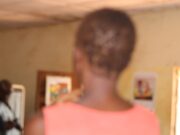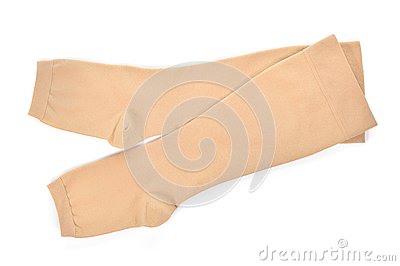I’ve had many women ask why they develop varicose veins during their pregnancy. I asked obstetrician / gynaecologist Dr. Stephen Mutiso about this and he offered the following information:
MT: What are Varicose Veins and what is the association with Pregnancy?
Dr. SM: Varicose veins are swollen veins that may bulge near the surface of the skin especially in the things, the legs and the back of the calves. Veins are the blood vessels that return blood from the feet and legs to the heart. Many women first develop varicose veins in pregnancy and for those with pre-existing varicose veins, they only tend to get worse during pregnancy.
During pregnancy, blood volume increases significantly and this distends the veins. In addition, during pregnancy progesterone levels are markedly increased. Progesterone is a pregnancy hormone which relaxes blood veins and keeps them dilated causing blood to pool in the legs.
Also as the uterus grows, it puts pressure on the large vein on the back called the inferior vena cava. Compression of this vein in turn increases pressure in the leg veins.Usually varicose veins do not pose any serious threat during pregnancy.
MT: What are the Symptoms of Varicose Veins?
Dr. SM: Varicose veins are usually symptom free. However, the legs may feel heavy sometimes, they may be itchy, uncomfortable and may have some pain.
MT: How are Varicose Veins Treated?
Dr. SM: Treatment of varicose veins during pregnancy is mainly conservative. Conservative treatment involves use of compression (elastic) stockings, regular exercises, elevation of legs at night and during rest periods during the day. Weight control is also very important.
The compression stockings are designed to squeeze the leg muscles, encouraging blood to flow upwards towards the heart. Surgery should be done only for the very severe cases where conservative measures have failed. Varicose veins usually improve after child birth.
MT: Are Varicose Veins in Pregnancy Preventable?
Dr. SM: Development of varicose veins in pregnancy can be prevented in the following ways:
– Engage in regular exercises which increase circulation of blood (exercises that last at least 30 minutes daily)
– Take frequent breaks to walk around and stretch your legs
– Elevate your feet every so often
– Make it a habit not to cross your legs as this is not recommended for pregnant women
– Avoid too much weight gain during pregnancy.
– Sleeping on the left side improves blood return back to the heart and this reduces pressure on the veins in the legs.
The good thing is that varicose veins get better after delivery, when the uterus is no longer exerting pressure on the large vein (inferior vena cava).
MT: Thanks Dr. Mutiso.
So now you know. Share this info with any pregnant woman you know. Have a lovely day.
 Dr. Stephen Mutiso is based at KNH in Nairobi. He provides a wide range of gynaecological services including: antenatal care, delivery (normal and caesarean), infertility treatment, fibroids, fistula treatment, and screening for reproductive tract cancers and other gynaecological procedures.
Dr. Stephen Mutiso is based at KNH in Nairobi. He provides a wide range of gynaecological services including: antenatal care, delivery (normal and caesarean), infertility treatment, fibroids, fistula treatment, and screening for reproductive tract cancers and other gynaecological procedures.
Find him at KNH Doctor’s Plaza, Suite 26/27
Tel: 0722 678 002 or 0788 306 674
Email: drmutisogyn@gmail.com
Read more of my interviews with Dr. Mutiso here.









































Varicose veins are a common, usually harmless part of pregnancy for some women. They happen when the uterus applies pressure to the large vein (the inferior vena cava) that carries blood back to the heart from your feet and legs.
Varicose veins can become itchy, uncomfortable, or even painful. They’re usually found in the legs, genital area, and rectum (hemorrhoids are just a type of varicose veins).
Varicose veins tend to be hereditary ù your mother or grandmother may have gotten them during pregnancy, too. So, unfortunately, there’s not much you can do to prevent them.
But here are some ways to reduce varicose vein pain and avoid making the veins worse:
Take frequent breaks and move around as much as possible if you have to stand or sit for a while.
Don’t cross your legs when sitting.
Elevate your feet often.
Wear maternity support hose. These special pantyhose gently compress the leg muscles and squeeze the veins to help push the blood back toward the heart. They differ from regular pantyhose because they apply gradual amounts of pressure to the leg, with the most compression at the ankle and less farther up the leg. It’s important to avoid tight socks or knee-highs that squeeze at a particular spot on the leg, as this can cut off circulation.
Get daily low-impact exercise if your doctor says it’s OK.
Sleep on your left side to keep the pressure off of the inferior vena cava, which is on the right side of your body.
Varicose veins are a common, usually harmless part of pregnancy for some women. They happen when the uterus applies pressure to the large vein (the inferior vena cava) that carries blood back to the heart from your feet and legs.
Varicose veins can become itchy, uncomfortable, or even painful. They’re usually found in the legs, genital area, and rectum (hemorrhoids are just a type of varicose veins).
Varicose veins tend to be hereditary ù your mother or grandmother may have gotten them during pregnancy, too. So, unfortunately, there’s not much you can do to prevent them.
But here are some ways to reduce varicose vein pain and avoid making the veins worse:
Take frequent breaks and move around as much as possible if you have to stand or sit for a while.
Don’t cross your legs when sitting.
Elevate your feet often.
Wear maternity support hose. These special pantyhose gently compress the leg muscles and squeeze the veins to help push the blood back toward the heart. They differ from regular pantyhose because they apply gradual amounts of pressure to the leg, with the most compression at the ankle and less farther up the leg. It’s important to avoid tight socks or knee-highs that squeeze at a particular spot on the leg, as this can cut off circulation.
Get daily low-impact exercise if your doctor says it’s OK.
Sleep on your left side to keep the pressure off of the inferior vena cava, which is on the right side of your body.
Very good advice Dr Mutiso …Very educative and informative article…keep it up.
Very good advice Dr Mutiso …Very educative and informative article…keep it up.
thanks Dr. Mutiso for sharing this information. Varicose veins are a common thing amoung us.your link is worth sharing with the pregnant mom’s group on facebook. soo informative
[…] See Also: Why do Some Pregnant Women get Varicose Veins? […]